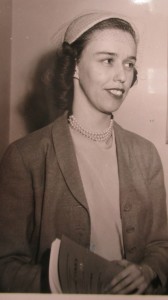Judge Cornelia Blanche Groefsema Kennedy, a giant of the federal bench, died last month at age 90 at her Michigan home.
As many have noted, Judge Kennedy was a pioneering woman in the law. She was born in Detroit in 1923. Her father was a lawyer and her mother sought to become one. When Cornelia was only nine, however, her mother, then in her second year of law school, died.
As Cornelia grew up, she more than fulfilled her mother’s aspirations. Raised by her father and an aunt, Cornelia attended Detroit public schools. She was a top graduate from Detroit’s Redford High School. In 1945, she became an honors graduate of the University of Michigan. In 1947, she earned her law degree at the University of Michigan, the law school that her mother had attended.
Following law school, Cornelia Groefsema—the future Judge Kennedy—broke the first of many professional glass ceilings: she became the first woman to serve as a law clerk at the United States Court of Appeals for the District of Columbia (today the U.S. Court of Appeals for the D.C. Circuit).
Cornelia’s clerkship opportunity developed in part because her sister Margaret also was a legal trailblazer. She, like Cornelia, had served as an editor of the Michigan Law Review before graduating from Michigan Law School.
In 1945-46, Margaret Groefsema served as a law clerk to U.S. Circuit Judge Thomas F. McAllister of the U.S. Court of Appeals for the Sixth Circuit. Judge McAllister, whose chambers were located in Grand Rapids, Michigan, was very pleased with Margaret’s work. In 1947, he sought to hire her sister Cornelia as his law clerk.
Cornelia turned down the offer to clerk for Judge McAllister. She was, she explained, more interested in clerking in the East. (I believe that a relationship with a man there was part of the pull.)
Judge McAllister then assisted Cornelia Groefsema in her clerkship hunt. Through a telephone call to the incumbent law clerk in the chambers of Justice Harold M. Stephens of the U.S. Court of Appeals in D.C., Judge McAllister learned that Judge Stephens soon would need a law clerk. So McAllister wrote to Stephens, explaining his knowledge of Miss Groefsema and recommending her.
A few days later, Cornelia, obviously coordinating moves with Judge McAllister, mailed her letter of application and resume to Judge Stephens. Soon thereafter, while visiting Washington, she interviewed with the Judge.
In October 1947, Judge Stephens decided to hire Cornelia Groefsema as his law clerk. She was his sole law clerk, and excellent at the work, for the duration of the Court’s 1947-1948 term.
Some links—
- The Detroit News’s obituary of Judge Kennedy;
- A blog post by Judge Richard G. Kopf, which includes great links to other articles on Judge Kennedy; and
- Her New York Times obituary.
Judge Kennedy will be remembered this Friday at a memorial service at her church.


